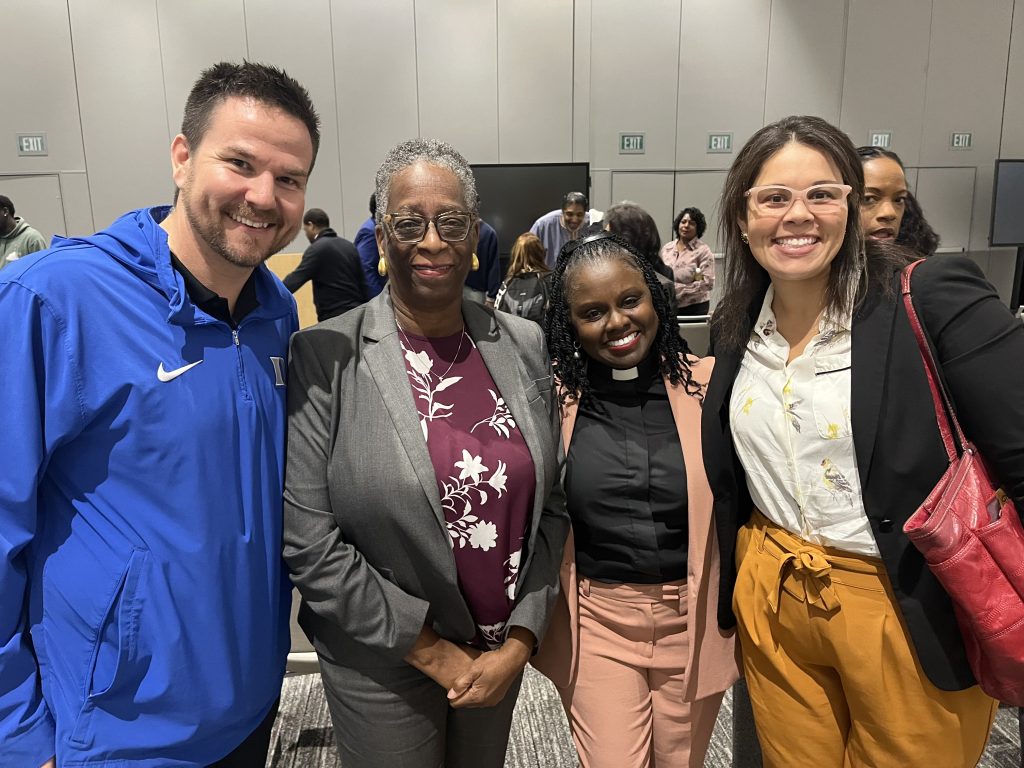What an Education is For: Character and the Second Curriculum at HBCUs

The North Carolina Central University (NCCU) Office of Community Engagement and Service, NCCU Wesley Campus Ministry, and Duke University Chapel co-sponsored a public conversation on “What an Education is For: Character and the Second Curriculum at HBCUs” at NCCU on Thursday, Oct. 16. The panelists included William J. Barber, II, Professor in the Practice of Public Theology and Public Policy and Founding Director of the Center for Public Theology and Public Policy at Yale Divinity School, Gary Brown, Vice Chancellor and Chief of Staff at NCCU, and Emily Hunt-Hinojosa, Senior Research Scholar & Associate Director of Partnerships at the Educating Character Initiative.
One of the questions the moderator asked the panelists concerned what HBCUs could or should do to have a seat at the table in the field of character education in higher education. Hunt-Hinojosa responded that HBCUs have been focused on character education for a long time and that non-HBCUs have much to learn from their traditions, commitment to college student character development, and leadership in the field.
The panel was one of the activities connected with an ECI Capacity-Building Grant involving a multi-institutional collaboration between Duke University and NCCU. Their work is focused on strengthening a three-year-old joint program, the Bridge Internship. Students from both schools spend a summer living together in Duke Chapel’s PathWays House in Durham’s West End neighborhood, sharing meals and engaging in discussions about purpose and meaning. They develop their character by serving in community organizations, learning about one another’s faith traditions, and visiting historic sites in Durham reflective of the city’s cultural diversity.
“My hope is that this will truly be a program that each intern can integrate fully into their way of life,” Rev. Dr. Gloria Winston, Executive Director of the NCCU Wesley Campus Ministry, said. “The tools that they receive in bridge-building, the respect for other faith traditions, and the humanity that goes along with it—I hope that these become part of their character.”
